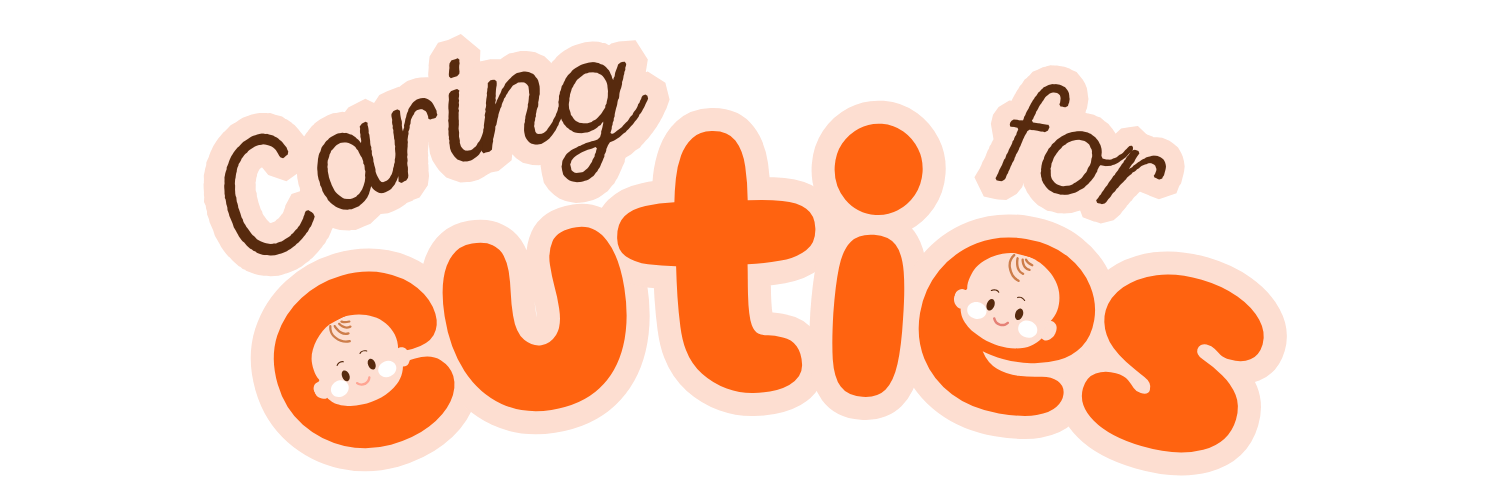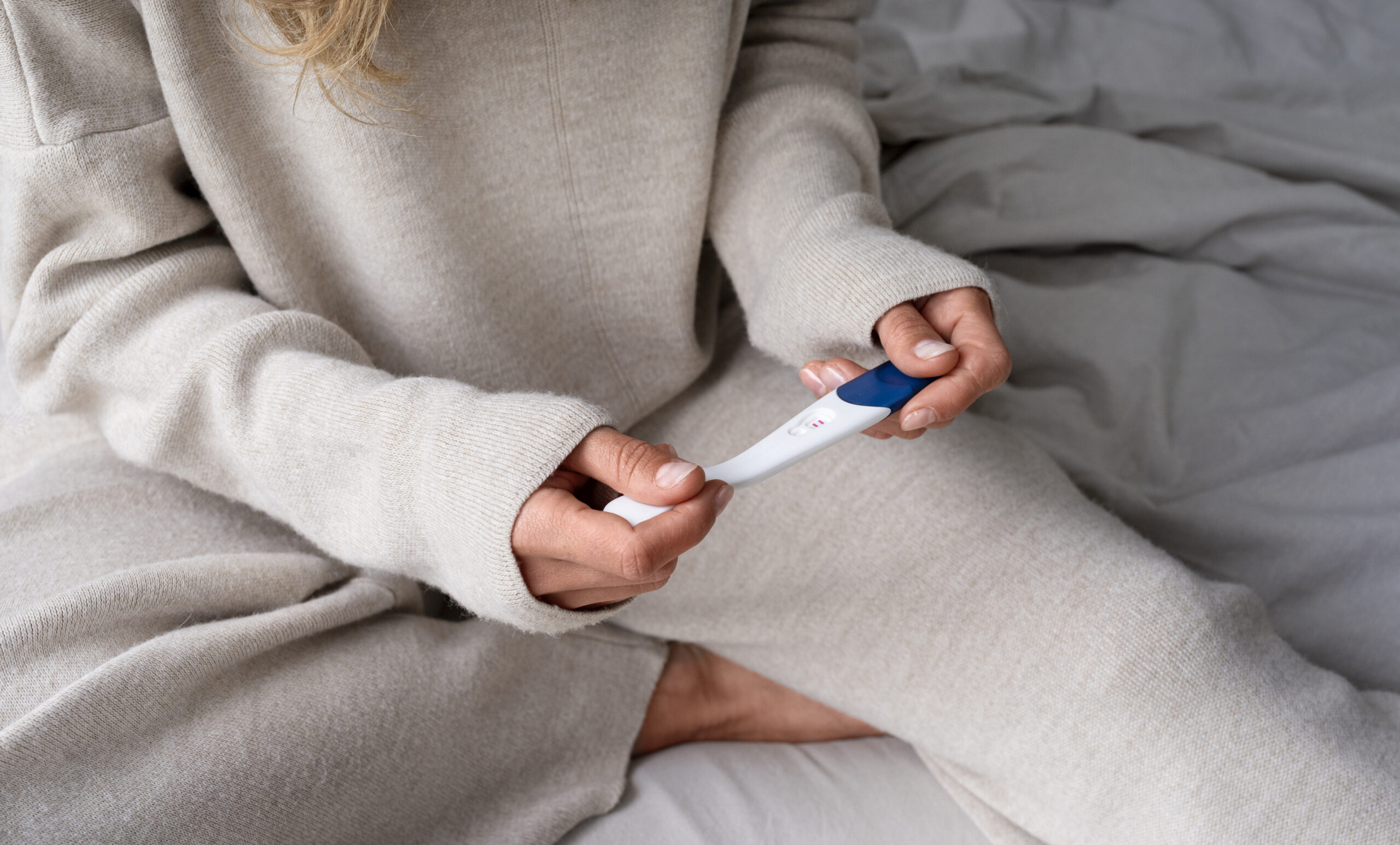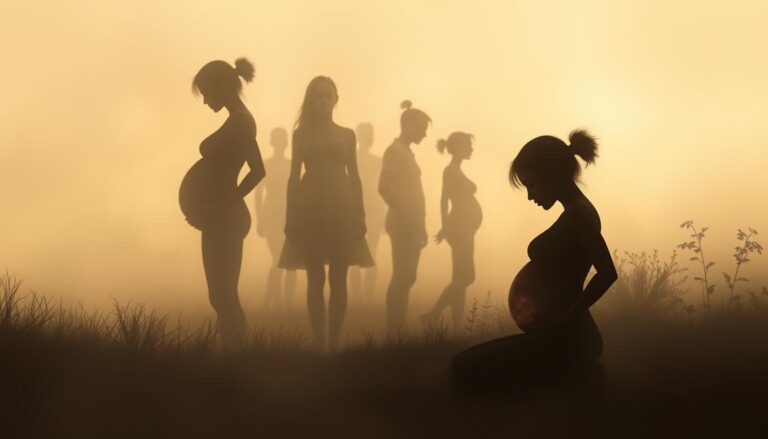Are you wondering if you might be pregnant? Knowing the early signs of pregnancy is key. These signs can range from missed periods to morning sickness. But, can you spot these signs before taking a pregnancy test?
In this guide, we’ll look at the most common early signs of pregnancy. This knowledge will help you understand your body’s changes. It’s important whether you’re trying to conceive or just curious about the signs.

Key Takeaways
- Recognize the early signs of pregnancy, including missed periods, morning sickness, and breast changes.
- Learn when these symptoms typically appear and why timely recognition is important for prenatal care.
- Distinguish between common and less common pregnancy signs to better understand your body’s unique changes.
- Explore the importance of seeking medical confirmation and the various testing options available.
- Discover steps to take in the initial stages of pregnancy to ensure a healthy start for you and your baby.
Understanding Early Signs of Pregnancy
It’s important for expecting mothers to know the early signs of pregnancy. These signs come from hormonal changes in the first weeks. Progesterone is a key hormone that helps the uterus get ready for the baby.
When Do First Signs Typically Appear?
The first signs of pregnancy can show up as early as the first week. But, how soon and how strong these signs are can differ for everyone. Some women might notice them right away, while others might not see any changes for weeks.
Why Early Recognition Matters
Spotting early signs of pregnancy is key for a healthy pregnancy. It lets women start early care for themselves and their baby. This care includes good food, lifestyle changes, and doctor visits, which help the baby grow well.
Common vs. Uncommon Symptoms
- Common early signs include missed periods, sore breasts, nausea, tiredness, and needing to pee a lot.
- Less common signs might be cravings or dislikes for certain foods, mood swings, and light bleeding.
Knowing about early pregnancy signs helps women understand their body changes. This leads to better care for themselves and their baby.
“Paying attention to the early signs of pregnancy can help women make informed decisions and take the necessary steps to ensure a healthy pregnancy.”
Missed Period: The Most Common Indicator
A missed period is a common sign of early pregnancy. It happens when the body doesn’t shed the uterine lining as it should. This is often the first sign that you might be pregnant.
But, a missed period isn’t always a sign of pregnancy. Some women have irregular cycles. Stress, certain medical conditions, or lifestyle changes can also cause missed periods.
If you think you might be pregnant, take a pregnancy test. Home tests can find the pregnancy hormone, hCG, early. They can detect it as soon as you miss your period.
| Symptom | Description |
|---|---|
| Missed Period | The most common and obvious early sign of pregnancy is a missed or delayed menstrual cycle. |
| Irregular Cycles | Some women may have naturally irregular menstrual cycles, making it difficult to pinpoint a missed period. |
| Medical Conditions | Certain medical conditions, such as polycystic ovary syndrome (PCOS), can also cause missed or delayed periods. |
| Stress and Lifestyle | High levels of stress, significant weight changes, or other lifestyle factors can disrupt the menstrual cycle. |
A missed period isn’t the only sign of early pregnancy. You might also feel nausea, have tender breasts, or feel very tired. Knowing these signs can help you confirm a pregnancy and get the right care.
Morning Sickness and Nausea
Morning sickness is a common sign of pregnancy. It includes nausea and vomiting. These symptoms can happen at any time, not just in the morning.
Understanding when and how long morning sickness lasts can help. It makes managing this tough time easier for pregnant women.
Timing and Duration
Morning sickness usually starts around the sixth week of pregnancy. It can last through the first trimester. But, how bad it is and how long it lasts can vary a lot.
Some women feel sick as early as four weeks. Others might not feel sick at all.
Managing Symptoms
Drinking lots of water and eating small meals can help. Avoiding strong smells and certain foods can also help.
Over-the-counter ginger or vitamin B6 might ease the symptoms. If it’s really bad, a doctor might give stronger medicine.
When to Seek Medical Help
It’s key to watch how bad morning sickness is. If it’s really bad or makes it hard to drink water, see a doctor.
Too much vomiting can cause dehydration and other problems. These need a doctor’s help.
“Morning sickness is a very real and challenging aspect of early pregnancy, but there are ways to manage the symptoms and find relief.”
Breast Changes and Tenderness
As pregnancy goes on, women often see big changes in their breasts. These changes happen because of the hormones in their body. Feeling tender and swollen in the breasts is a common sign of pregnancy.
The rise in estrogen and progesterone makes the breasts get more blood. This makes them feel heavier, more sensitive, and sometimes painful. The areolas, the dark skin around the nipples, may get darker and bigger too.
These changes start early in pregnancy and can last into the first trimester. The discomfort might not last long. But the breasts will keep growing as the pregnancy goes on.
Feeling tender in the breasts is normal during pregnancy. But if it hurts a lot or you have other worries, see a doctor.
| Breast Changes | Typical Onset | Duration |
|---|---|---|
| Tenderness and Swelling | 1-2 weeks after conception | Throughout the first trimester |
| Darkening of the Areolas | Early in pregnancy | Can persist throughout pregnancy |
| Increase in Breast Size | Throughout pregnancy | Continues as the pregnancy progresses |
Knowing about the common breast changes in early pregnancy helps women get ready. It makes managing these changes easier.
Fatigue and Energy Changes
Pregnancy can make a woman very tired. Many expectant mothers feel fatigue and tiredness a lot. Knowing why this happens and how to fight it can make early pregnancy easier.
Causes of Pregnancy Fatigue
The main reasons for fatigue in early pregnancy are:
- Hormonal changes, like more progesterone, make you feel sleepy
- Your body needs to work harder to move blood and nutrients around
- Anemia, or low iron, is common and makes you tired
- Stress and worry about the pregnancy also drain your energy
Managing Early Pregnancy Tiredness
There are ways to fight fatigue and feel more energetic early in pregnancy:
- Make sleep a priority, aiming for 7-9 hours each night
- Do some light exercise, like walking or prenatal yoga, to boost energy
- Eat foods rich in iron to fight anemia
- Drink lots of water to stay hydrated
- Use relaxation methods, like deep breathing or meditation, to manage stress
If fatigue is really bad or you have other symptoms, see your doctor. Knowing why you’re tired and how to deal with it can help you feel better during early pregnancy.
Frequent Urination Patterns
Many women notice they need to pee more when they’re pregnant. This is because of hormonal changes and more blood in the body. These changes happen early in pregnancy.
The growing uterus puts pressure on the bladder. The kidneys also work harder to filter more blood. This means women might need to pee every hour or two.
- Frequent urination is one of the first signs of pregnancy, showing up as early as the 6th or 8th week.
- This symptom can last all through pregnancy, getting worse as the baby grows.
- It’s important to watch how often you pee, as too much can mean a health issue that needs a doctor.
If you also feel burning, pain, or see blood when you pee, see a doctor. They can check for infections or other problems. They can also help you deal with this common sign of pregnancy.

“Frequent urination is one of the most common early signs of pregnancy, affecting up to 80% of expectant mothers.”
Knowing why and how often you pee when pregnant helps you get ready for this change. It’s a normal part of being pregnant, even if it’s a bit of a hassle.
Food Cravings and Aversions
Pregnancy can change how you like food. Many women start to crave or dislike certain foods early on. These changes are due to the hormones in your body.
Understanding Dysgeusia
Dysgeusia is a change in how you taste things. It can make your mouth taste metallic or bitter. This can make some foods seem bad or make you want foods you don’t usually like.
Common Food Preferences
Women often want certain foods early in pregnancy. These include:
- Salty snacks like chips or pretzels
- Sweet treats like ice cream or chocolates
- Citrus fruits or other tart/sour items
- Carbohydrate-rich foods like bread or pasta
Some women also start to dislike foods they used to like. This can include coffee, spicy food, or meats. Your body might be trying to protect you by making you avoid these foods.
It’s key to notice and understand your food changes. Make sure you’re eating well for your baby. If you’re craving things that aren’t food or really dislike food, talk to your doctor.
Mood Swings and Emotional Changes
Pregnancy can make you feel like you’re on a rollercoaster of emotions. Mood swings and being more sensitive are early signs. These feelings come from the fast changes in hormones in your body.
Hormones like estrogen and progesterone change a lot. This can make you feel happy one minute and upset the next. You might even cry easily. It’s normal to feel many emotions in one day.
Coping with Mood Swings
Even though mood swings can be tough, there are ways to deal with them:
- Try relaxation techniques like deep breathing or meditation. They can help calm your feelings.
- Talk to your loved ones. They can offer support and understanding during this time.
- Take care of yourself by eating well, sleeping enough, and doing things you enjoy.
- If your mood swings are really bad, talk to your doctor. They can help.
By understanding and dealing with these emotional changes, you can make your pregnancy journey easier. Be kind to yourself during this time.

| Symptom | Frequency | Duration |
|---|---|---|
| Mood Swings | Common | Throughout Pregnancy |
| Emotional Changes | Common | Throughout Pregnancy |
Remember, feeling like you’re on an emotional rollercoaster is normal in early pregnancy. Be patient and take steps to manage these feelings. This way, you can get through this time with more ease and support.
Physical Discomfort and Body Changes
Pregnancy brings many physical changes. It’s key to know how to handle them. Backache and headaches are common issues for expecting moms.
Backache and Headaches
Backaches are common due to the extra weight and strain on the lower back. Try gentle stretches, use a pregnancy pillow, and apply a warm compress to the area.
Headaches can be caused by hormonal changes, stress, or dehydration. Use over-the-counter pain relievers, stay hydrated, and try relaxation techniques. If headaches get worse, see a healthcare provider.
Digestive Changes
Digestive issues like constipation, heartburn, and indigestion are common. Hormonal changes and the growing uterus can cause these. Eat more fiber and avoid spicy or acidic foods. Over-the-counter antacids can help with heartburn and indigestion.
Remember, everyone’s experience is different. If symptoms last or are severe, talk to a healthcare provider.
| Symptom | Potential Cause | Relief Strategies |
|---|---|---|
| Backache | Extra weight and strain on the lower back | Gentle stretches, pregnancy pillow, warm compress |
| Headaches | Hormonal fluctuations, stress, dehydration | Over-the-counter pain relievers, hydration, relaxation techniques |
| Constipation | Hormonal changes, growing uterus | Increase fiber intake, stay hydrated |
| Heartburn | Hormonal changes, growing uterus | Avoid spicy/acidic foods, over-the-counter antacids |
| Indigestion | Hormonal changes, growing uterus | Avoid spicy/acidic foods, over-the-counter antacids |
Skin Changes and Sensitivities
When you’re pregnant, your body goes through big changes. You might notice your skin changing and feeling more sensitive. These changes can be mild or more noticeable. Knowing why they happen can help you deal with any discomfort.
One common change is increased skin sensitivity. Many women feel like their skin is more sensitive or itchy. This is because of the hormones like estrogen and progesterone. They can make your skin dry and irritated.
- Increased skin sensitivity and possible itchiness
- Hormonal changes causing skin irritation and dryness
- New skin conditions like melasma or spider veins
Some women also see skin conditions like melasma or spider veins. Melasma is dark patches on the face, often called the “mask of pregnancy.” Spider veins are small blood vessels that show up on the skin, usually on the legs or face.
Even though these changes can be unsettling, they’re a normal part of pregnancy. Knowing what’s happening and how to manage it can help keep your skin healthy and comfortable during this time.
“Embrace the changes your body is going through, and take care of your skin with gentle, nourishing products.”
Light Spotting and Implantation Bleeding
In the early days of pregnancy, many women notice light spotting or implantation bleeding. This is a sign that the fertilized egg has attached to the uterine lining. It’s often mistaken for a menstrual period.
Timing and Duration
Implantation bleeding happens 6 to 12 days after conception. It’s a light flow that lasts only a day or two. This is much different from a regular period.
When to Contact Healthcare Provider
- If the bleeding is heavier than usual or lasts more than a few days, call your healthcare provider.
- Persistent or unexplained bleeding could mean a serious issue like miscarriage or ectopic pregnancy. See a doctor.
Not all women see light spotting or implantation bleeding in pregnancy. But knowing about it can help you tell if it’s normal or if you need to see a doctor.
Changes in Vaginal Discharge
Early pregnancy can change your vaginal discharge. These changes show your body’s hormones and your growing fetus. Knowing these signs can help you know when to see a doctor.
One early sign is more vaginal discharge. This discharge is usually clear or milky-white. It’s thin and watery. It happens because of more blood flow and hormones, getting ready for the embryo.
But, some changes might mean a problem. For example, thick, clumpy, or smelly discharge could be a yeast infection or bacterial vaginosis. These need medical help. Greenish-yellow, frothy discharge might mean an STI and needs a doctor’s check.
Watch your vaginal discharge closely in early pregnancy. Tell your doctor if it changes in a way that worries you. Quick treatment of infections is key to keep you and your baby safe.
| Type of Discharge | Possible Meaning | When to Seek Medical Attention |
|---|---|---|
| Increased, clear or milky-white discharge | Normal pregnancy-related changes | No immediate concern |
| Thick, clumpy discharge with a strong odor | Yeast infection or bacterial vaginosis | Contact healthcare provider |
| Greenish-yellow, frothy discharge | Sexually transmitted infection (STI) | Contact healthcare provider immediately |
Knowing about vaginal discharge changes in early pregnancy helps you watch your health. If you notice anything odd, see a doctor right away.
Confirming Your Pregnancy
Discovering you’re pregnant can be exciting and uncertain. You have several options to confirm your pregnancy. Let’s look at home pregnancy tests and medical verification.
Home Pregnancy Tests
Home pregnancy tests have improved a lot. They check for human chorionic gonadotropin (hCG), a hormone in pregnancy. For best results, take the test in the morning when hCG levels are highest.
Home tests can show if you might be pregnant. But, they’re not always 100% sure. For a clear answer, you should get a medical check-up.
Medical Verification Options
Seeing a healthcare provider is the best way to know for sure. They can do a blood test or a urine test. Blood tests are very accurate and show how far along you are.
Your doctor might also do a pelvic exam and talk about your health history. This helps them understand your pregnancy better. It’s important for your health and care during pregnancy.
Confirming your pregnancy is just the start. Working with a trusted healthcare provider is key. They will help you through the ups and downs of pregnancy.
When to Seek Medical Care
Early pregnancy is exciting but delicate. It’s key to see a doctor when needed. Watch for signs that mean you should get a GP consultation or an ultrasound scan.
Here are signs to call your healthcare provider right away:
- Severe or persistent nausea and vomiting that stops you from eating or drinking
- Heavy vaginal bleeding or spotting with cramps or pain
- Sudden and severe abdominal or pelvic pain
- Fever, chills, or other signs of infection
- Persistent headaches, dizziness, or blurred vision
- Big changes in your baby’s movement or activity
These signs might mean you need more medical help. They could be signs of problems or need more checks. Always talk to your healthcare provider for help and advice.
Also, see your doctor as soon as you think you might be pregnant. Your first visit is important. It lets your doctor check your health, do screenings, and plan your care.
| Symptom | Potential Concern | When to Seek Medical Attention |
|---|---|---|
| Severe nausea and vomiting | Dehydration, electrolyte imbalance | Immediately |
| Heavy vaginal bleeding | Miscarriage, ectopic pregnancy | Immediately |
| Sudden, severe abdominal pain | Ectopic pregnancy, placental issues | Immediately |
| Fever, chills, or signs of infection | Urinary tract infection, other infections | Immediately |
| Persistent headaches, dizziness | Preeclampsia, gestational hypertension | Within 24 hours |
| Decreased fetal movement | Potential fetal distress | Immediately |
Your health and your baby’s are most important. Always talk to your healthcare provider with any worries or questions.
Early Prenatal Care Steps
Starting your journey to parenthood is thrilling and meaningful. As soon as you know you’re pregnant, it’s key to start prenatal care early. This ensures your health and your baby’s well-being. Here are the first steps in your prenatal care journey.
First Appointments
After a positive pregnancy test, book your first visit with your healthcare provider. This usually happens between 8-12 weeks of pregnancy. It’s a chance to confirm your pregnancy, set a due date, and talk about your health and any risks.
Important Health Screenings
Your healthcare provider will do many important tests at these early visits. They’ll use an ultrasound to check on your baby’s growth and look for any problems. They’ll also do blood tests to check for anemia, genetic disorders, and other health issues.
These tests are key to finding any needed care for a healthy pregnancy.
FAQ
When do the first signs of pregnancy typically appear?
The first signs of pregnancy can start around 4-6 weeks after conception. But, each woman’s body is different.
Why is early recognition of pregnancy symptoms important?
Recognizing symptoms early helps with healthcare decisions. It ensures the health of the mom and baby.
What are some common early pregnancy symptoms?
Early signs include a missed period, morning sickness, and breast tenderness. Fatigue, frequent urination, and mood changes are also common.
What is the most common early indicator of pregnancy?
A missed period is the most common sign. But, it can also mean other things. So, a pregnancy test is key.
When does morning sickness typically start, and how can it be managed?
Morning sickness starts around 6-8 weeks. It can be managed by eating small meals and staying hydrated.
What breast changes can occur during early pregnancy?
Early pregnancy can make breasts tender, swollen, and darker. Hormonal changes cause these changes.
Why does fatigue and tiredness increase during early pregnancy?
Hormonal changes and blood volume increase cause fatigue. Rest and healthy living can help manage it.
What causes the frequent urination pattern in early pregnancy?
Hormonal changes and increased blood volume cause frequent urination. This puts pressure on the bladder.
What are some common food cravings and aversions in early pregnancy?
Cravings for sweet or salty foods are common. Aversions to certain smells or tastes can also happen.
How might mood swings and emotional changes manifest in early pregnancy?
Mood swings and heightened emotions are common. Hormonal changes make women more sensitive and irritable.
What types of physical discomfort can occur in early pregnancy?
Backaches, headaches, and constipation are common. These are due to hormonal changes and supporting the baby.
What skin changes or sensitivities can occur in early pregnancy?
Increased sensitivity and dryness are common. Hormonal changes and blood flow cause these skin issues.
What is the difference between light spotting and implantation bleeding?
Light spotting is caused by the embryo implanting. It’s different from menstrual bleeding, which is heavier.
What changes in vaginal discharge can occur during early pregnancy?
Increased discharge is common. It’s wetter and milky-white. Any big changes should be checked by a doctor.
How can a pregnancy be confirmed?
A home pregnancy test or a blood test can confirm pregnancy. A healthcare provider may also use an ultrasound.
When should a woman seek medical care during early pregnancy?
Seek medical care for severe nausea, heavy bleeding, or persistent pain. The first prenatal visit is around 8-12 weeks.
What can be expected during the first prenatal care appointments?
The first visits include health screenings and an ultrasound. They confirm the pregnancy and check the health of mom and baby.





